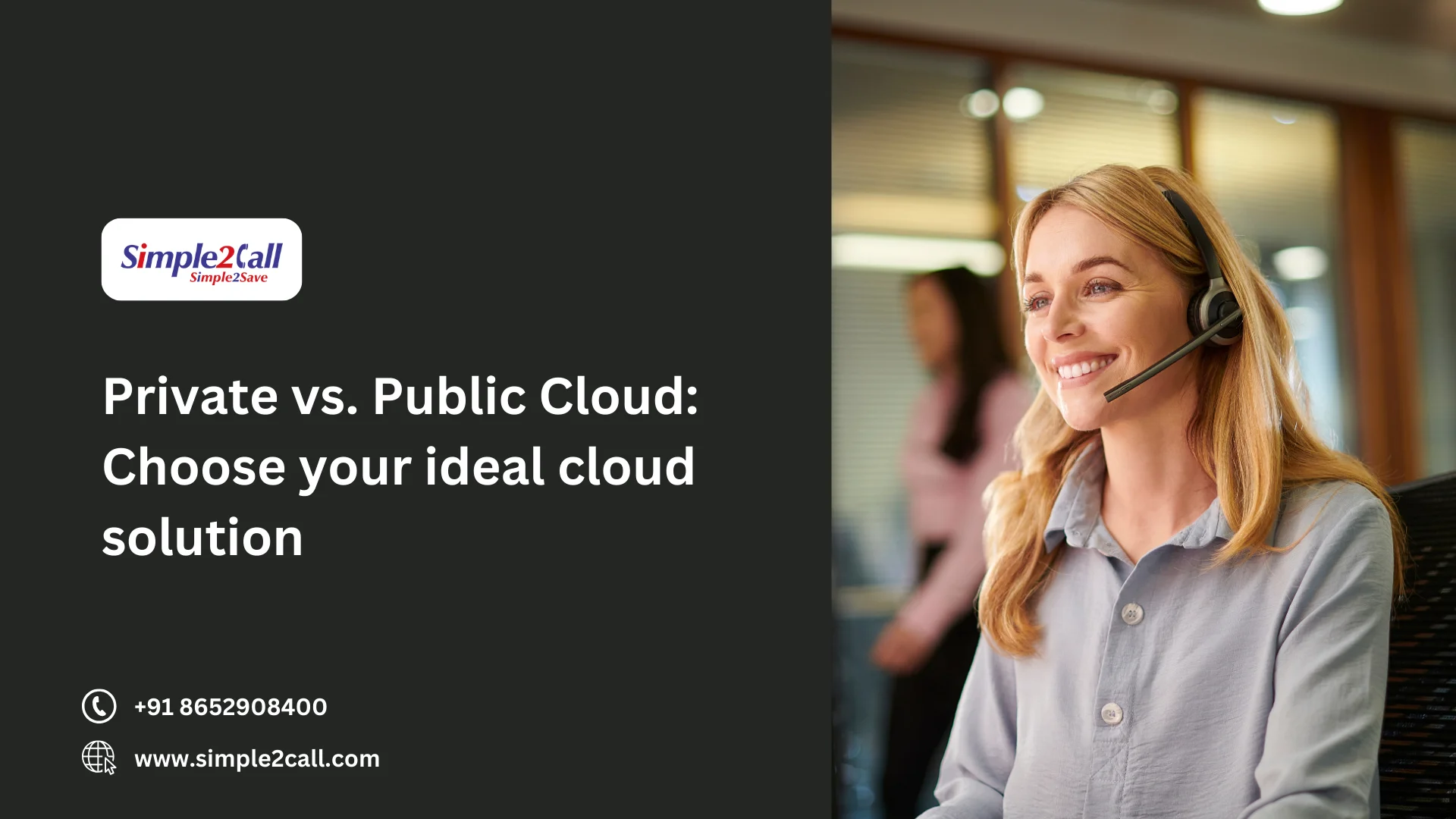
January 02, 2024 - 7 Min Read
Private vs. Public Cloud: Choose Your Ideal Cloud Solution
Technology has brought us some unique innovations, and one of them is cloud computing. Cloud computing is a buzzword these days, but what does it mean?
What is Cloud Computing?
Cloud computing is basically a way of using the internet to link and manage different types of computers. Instead of having to buy your own hardware or servers to store your data, cloud computing lets you and your business access and manage a bunch of servers over the internet to store, work on, and manage your data. It's like accessing a virtual environment where files can be stored, applications run, and more without leaving your home or office.
What is a Public Cloud?
Basically, the public cloud is a way of using the cloud where you can get services and stuff from anywhere on the internet. You can do this for the general public or a big industry. The infrastructure, tech, and software are all shared between different companies.
When to Use the Public Cloud
- Scalability Needs: When you need to scale your resources quickly based on demand. It's like an elastic band that can stretch and shrink as needed.
- Cost-Efficiency: If you're looking for a cost-effective solution that only pays for the resources you use, the public cloud offers a 'pay-as-you-go' model.
- Temporary Projects: For projects that require quick or on-demand resources, the public cloud is an excellent choice as it provides flexibility in resource allocation.
Advantages of Public Cloud
- Cost-Efficiency: Public clouds work on a "pay-per-use" (P2P) model, meaning businesses can easily manage costs. You only pay for the stuff you use.
- Scalability: Since public clouds can be scaled up or down as needed, you can make sure you have enough capacity to meet peak demand and save money in off-peak times.
- Accessibility: These services can be accessed from anywhere with a web browser, giving users and businesses much freedom.
Drawbacks of Public Cloud
- Security Concerns: Security is a big deal since data is stored on shared servers off-site. Even though cloud providers have robust security, the environment is shared, so risks are involved.
- Limited Customization: Most public cloud services have one-size-fits-all solutions, so you can't customize them to fit your company's needs.
What is a Private Cloud?
A private cloud is a type of cloud computing that uses a private network to store and manage services and infrastructure. It's only used by one company and can be on-site or hosted by a third party.
When to Use the Private Cloud
- Enhanced Control is Necessary: Your organization requires high control over data, security, and compliance.
- Handling Sensitive Data: If your business deals with sensitive data requiring stringent compliance and security requirements.
Advantages of Private Cloud
- Enhanced Security: Since your data and infrastructure are in your hands, you can tailor your security measures to fit your needs and get more protection.
- High Customization: Private clouds are really customizable, which means you can tailor the solutions to suit your company's needs.
Drawbacks of Private Cloud
- Higher Costs: Installing a private cloud means you'll need to spend money upfront to set up the infrastructure and keep it running smoothly.
- Limited Scalability: Scaling a private cloud can be more challenging than a public cloud due to the dedicated nature of resources.
Key Differences: Public Vs. Private Cloud
It's essential to know the difference between public and private clouds when deciding which is right for you. Let's take a look at the main differences between the two:
1. Ownership and Control
- Public Cloud: Involves shared infrastructure and limited control.
- Private Cloud: Entails dedicated infrastructure with complete control.
2. Security Responsibility
- Public Cloud: Security responsibility is shared with the cloud provider.
- Private Cloud: The organization has more control over security measures.
3. Cost Structure
- Public Cloud: Operates on a 'pay-as-you-go' model, optimizing costs.
- Private Cloud: Requires an upfront investment and ongoing maintenance costs.
4. Customization
- Public Cloud: Offers standardized offerings.
- Private Cloud: Allows high customization based on organizational requirements.
5. Scalability
- Public Cloud: Highly scalable, both up and down, to meet varying demands.
- Private Cloud: Scalability is limited due to the dedicated nature of resources.
What is Hybrid Cloud?
Hybrid Cloud Computing is a way of using the cloud where data and apps are stored both in the public cloud and in the private cloud.
When to Use the Hybrid Cloud
- It would be best if you had the flexibility of the public cloud for specific functions or applications.
- Your organization requires high security for particular data.
Advantages of Hybrid Cloud
- Flexibility: Hybrid cloud combines the advantages of both public and private cloud, giving you more control over how you run your business and allocate your resources.
- Cost-Effectiveness: You can save money using the public cloud for sensitive data and the private cloud for important stuff.
Drawbacks of Private Cloud
- Complexity: Managing both environments ensuring smooth integration and data flow, can be complex and challenging.
- Integration Challenges: Seamless integration between public and private clouds requires careful planning and execution.
Cloud Responsibility: A Shared Model
When it comes to cloud computing, it's essential to understand the shared responsibility model. The cloud provider controls some security and infrastructure, and the user controls data management and configuration. Understanding this division is vital to having a safe and efficient cloud experience.
To summarize, knowing the difference between a public and privately hosted cloud is essential. They have pros and cons, so they're different for different situations. As tech changes, a good understanding of cloud computing will be more and more critical in the future.